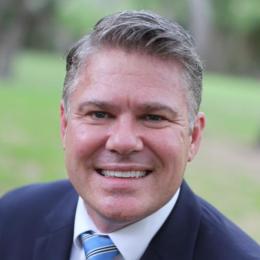Banner artwork by Viktoria Kurpas / Shutterstock.com
Environmental, social, and governance (ESG) issues are gaining importance and visibility within companies with the emergence of multijurisdictional regulatory obligations, compliance, reporting, and auditing requirements. We see an enhanced focus on mitigating legal risk while simultaneously meeting business objectives.
This is likely an unexpected and unwelcome prospect for many of the current chief sustainability officers (CSO) who often see themselves as dedicated social and sustainability advocates embedded within a company. And up to now, they have been able to serve in their roles as maximalists; from this perspective, the more ESG actions the better, and there could not be enough stakeholder engagement or focus on double/impact/non-financial materiality.
Legal perspectives in demand
We are now entering a new era of ESG, in which emerging rules and demands emphasize legal analysis and skills. In this next stage, companies will need professionals who are experts in fiduciary duties and will prioritize their professional obligations to the company over environmental or social causes that may resonate personally for them, even when considering triple bottom lines or double materiality.

There is one professional that is an expert in fiduciary duties and is tasked with placing legal obligations over personal motivations — the lawyer. This is why at this time, GCs, depending on their company size and exposure to ESG issues, should consider hiring ESG deputy general counsel, advising their CEOs to hire a CSO with a legal background, or fostering cross-functional collaboration.
Navigating the “G” in ESG
Next, the weakest letter in ESG for many current CSOs is likely “G.”
This is not surprising, considering many came from corporate social responsibility (CSR), corporate communications, or environmental/climate backgrounds.
Yet, even the inventor of the ESG acronym knew from the start that “G” was the most important letter, providing “if a company gets its G right the others should follow.”

The predominant focus of current CSOs is on the politically complex and evolving “E” and the “S” issues (where they may be much more comfortable as advocates), but this has arguably led to much confusion over ESG. Governance is the antidote to confusion, and simply put, lawyers are the owners of the “G” within a company.
Lawyers are the antidote to confusion, and simply put, lawyers are the owners of the "G" within a company.
In addition, the previous era of often well intentioned ESG maximalism by CSOs without legal training has exposed a number of companies to unnecessary legal, reputational, greenwashing, and other risks (i.e., responding to pressure from stakeholders by making virtuous statements or commitments they have no current plan to accomplish and/or have not undergone the same rigor a commitment for a “material” topic discussed in an earnings call or written about in a 10-K would have).
One of the often underappreciated features of inclusion of legal counsel in sustainability discussions is their ability to foster freer discussion protected by the attorney-client privilege.
This has resulted in several government agencies, such as the SEC and state legislatures, including the recent California climate bills, to take action focused on compliance, reporting, auditing, and minimizing legal risks. These developments will result in a further refocusing of ESG on the “G” and an emphasis on reviewing disclosures, so they are not false or misleading. Lawyers are experts in this area as well.
Keeping ESG in the legal department has advantages
Finally, one of the often underappreciated features of inclusion of legal counsel in sustainability discussions is their ability to foster freer discussion protected by the attorney-client privilege when practical and helpful to the company. Of course, here there is no substitute to having a lawyer in the lead when it comes to this benefit.
Arguably, another option is to foster tighter coordination among your sustainability, legal, auditing, risk, and compliance functions. This may be the best option for smaller companies or those with limited exposure to ESG issues. However, as shown above, a more efficient CSO option is filling the role with a business-minded lawyer who is comfortable working with multiple stakeholders simultaneously. If not, GCs should be hiring ESG deputies to work closely with their CSOs.







